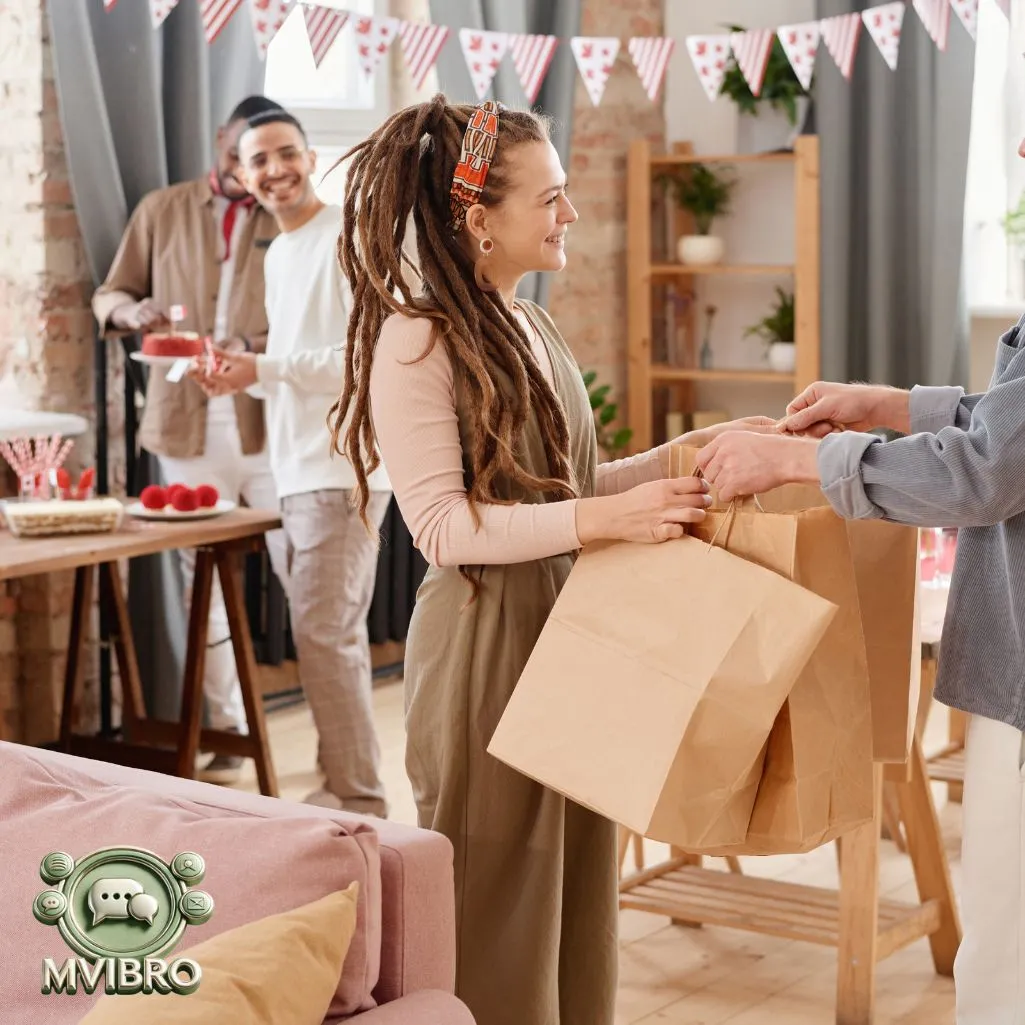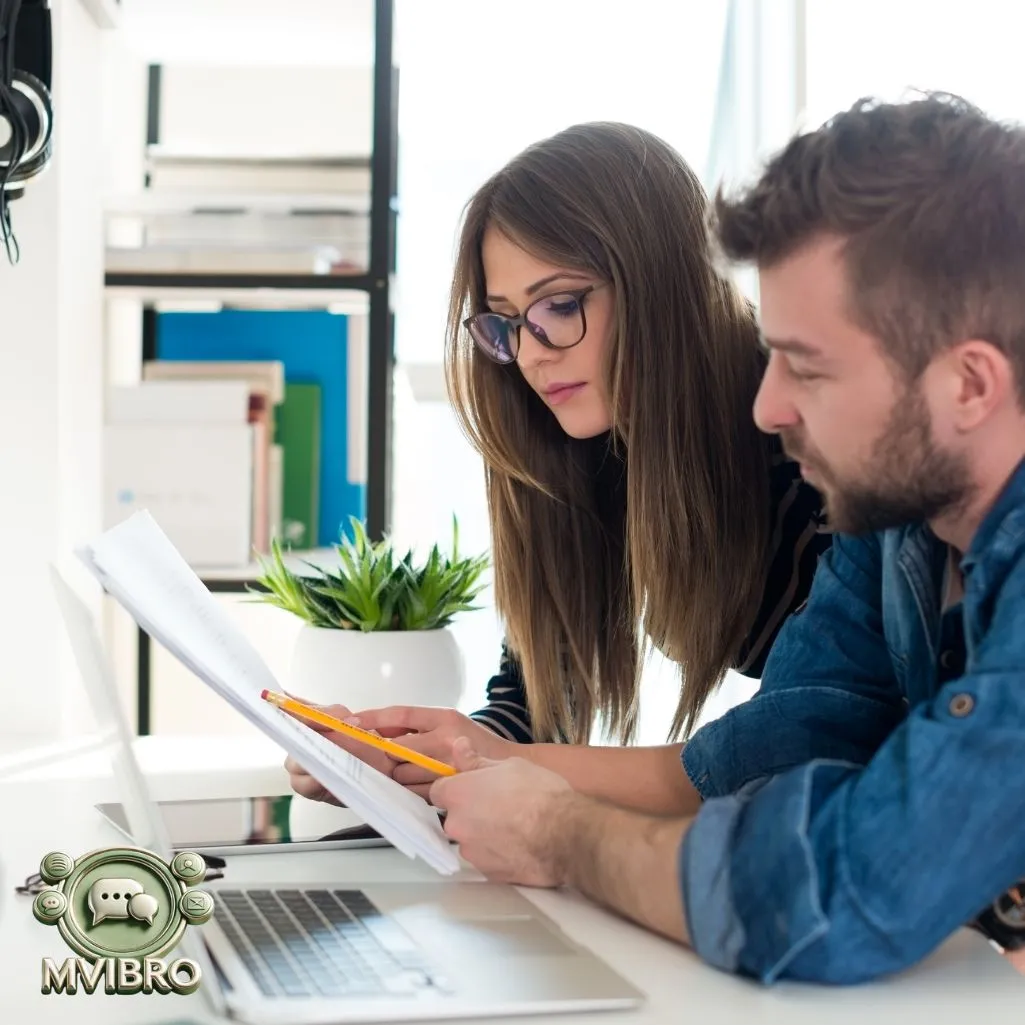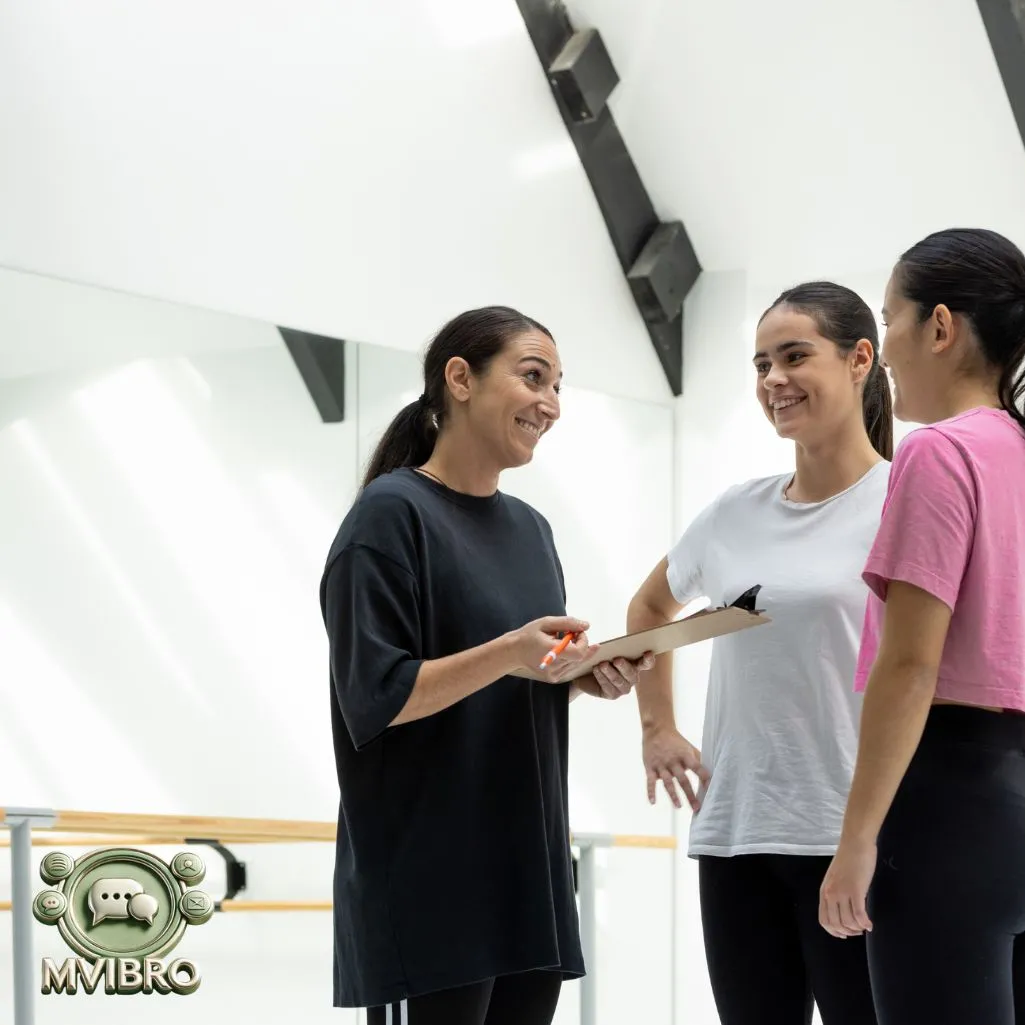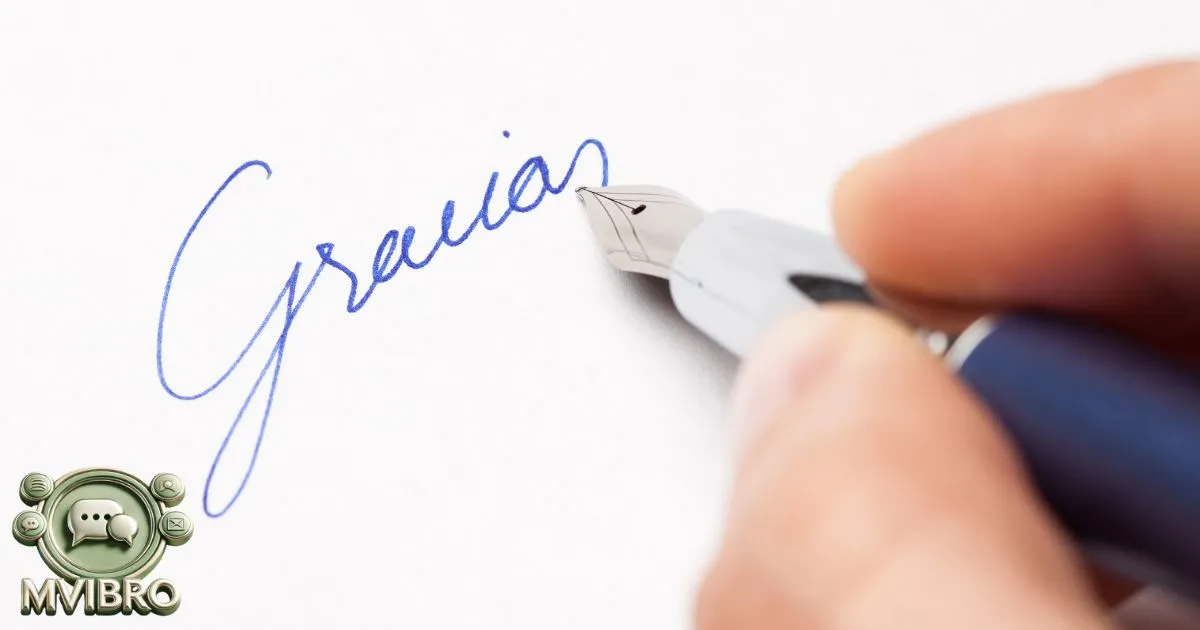“Gracias” isn’t just a word; it’s a gateway to meaningful connections in Spanish-speaking cultures.
When someone says “Gracias” in Spanish, they’re expressing heartfelt gratitude. This simple yet powerful word is integral to conversations in Spanish-speaking communities. Understanding how to reply appropriately allows you to connect better with others and show cultural appreciation.
Are you ready to enhance your Spanish conversations? In this guide, you’ll discover formal, casual, and even playful ways to respond to “Gracias.” From adding a touch of elegance to keeping it fun and light-hearted, you’ll find responses that fit every occasion.
Responding to “Gracias” goes beyond language—it’s about building bridges of respect and warmth. Whether you say “De nada” or choose a more creative response, your words will make a lasting impression. Let’s dive into the art of replying to “Gracias” and elevate your interactions!
List of Respond to “Gracias” in Spanish
- Formal Replies to “Gracias”
- Informal Replies to “Gracias”
- Gratitude Acknowledgment Replies to “Gracias”
- Casual or Humorous Replies to “Gracias”
- Cultural or Contextual Replies to “Gracias”
- Expressions of Humility When Replying to “Gracias”
- Affirmative Replies to “Gracias”
- Supportive Replies to “Gracias”
- Complimentary Replies to “Gracias”
- Cordial Replies to “Gracias”
- Religious or Spiritual Replies to “Gracias”
- Friendly or Colloquial Replies to “Gracias”
- Encouraging Replies to “Gracias”
- Playful Replies to “Gracias”
- Expressive Replies to “Gracias”
- Humorous Replies to “Gracias”
- Pragmatic Replies to “Gracias”
- Gratitude Exchange Replies
- Reflective Replies to “Gracias”
- Social or Community-Focused Replies to “Gracias”
- Supportive Replies to “Gracias”
- Friendly or Colloquial Replies to “Gracias”
Formal Replies to “Gracias”
- De nada. (You’re welcome.)
- Con gusto. (With pleasure.)
- Es un placer. (It’s a pleasure.)
- No hay de qué. (Don’t mention it.)
- Siempre a sus órdenes. (Always at your service.)
- Encantado/a de ayudar. (Delighted to help.)
- Ha sido un honor. (It’s been an honor.)
- Estamos aquí para servirle. (We’re here to serve you.)
- Por supuesto. (Of course.)
- Fue mi deber. (It was my duty.)
- No tiene que agradecer. (You don’t have to thank me.)
- A usted gracias. (Thanks to you.)
- Con el mayor gusto. (With the greatest pleasure.)
- Estamos para apoyarle. (We’re here to support you.)
- Le agradezco a usted. (I thank you.)
Informal Replies to “Gracias”
- ¡Claro! (Of course!)
- No pasa nada. (It’s nothing.)
- De nada, amigo/a. (You’re welcome, buddy.)
- ¡Todo bien! (All good!)
- No te preocupes. (Don’t worry about it.)
- Es lo menos que podía hacer. (It’s the least I could do.)
- Nada que agradecer. (Nothing to thank me for.)
- Con todo gusto. (With all pleasure.)
- Para eso estamos. (That’s what we’re here for.)
- No fue nada. (It was nothing.)
- ¡A la orden! (At your service!)
- Siempre aquí para ti. (Always here for you.)
- No hay problema. (No problem.)
- Fue un gusto. (It was a pleasure.)
- ¡Sin lío! (No trouble at all!)
Gratitude Acknowledgment Replies to “Gracias”
- Gracias a ti. (Thanks to you.)
- Yo te agradezco más. (I thank you even more.)
- No, en serio, gracias a ti. (No, seriously, thank you.)
- Es un placer recibir tu gratitud. (It’s a pleasure to receive your gratitude.)
- Te lo agradezco de corazón. (I thank you from the bottom of my heart.)
- Estoy muy agradecido/a contigo. (I’m very grateful to you.)
- Gracias por confiar en mí. (Thank you for trusting me.)
- Es un honor recibir tu agradecimiento. (It’s an honor to receive your thanks.)
- Significa mucho para mí. (It means a lot to me.)

- Estoy feliz de haber ayudado. (I’m happy to have helped.)
- Gracias mutuas. (Mutual thanks.)
- Yo debería darte las gracias. (I should be thanking you.)
- Tu gratitud ilumina mi día. (Your gratitude brightens my day.)
- Agradecido/a siempre. (Always grateful.)
- Gracias por dejarme ayudarte. (Thank you for letting me help you.)
Casual or Humorous Replies to “Gracias”
- ¡No hay drama! (No drama!)
- ¡Cualquier cosa por un amigo! (Anything for a friend!)
- ¡Fue pura suerte! (It was pure luck!)
- De nada, aunque lo dudé al principio. (You’re welcome, though I doubted it at first.)
- ¡Siempre dispuesto a ser un héroe! (Always ready to be a hero!)
- ¡Lo hice por el café! (I did it for the coffee!)
- ¡Esto fue pan comido! (This was a piece of cake!)
- Te debo una, pero igual de nada. (I owe you one, but you’re still welcome.)
- ¡Fue más divertido de lo que parecía! (It was more fun than it seemed!)
- ¿No esperabas menos de mí, cierto? (You didn’t expect less from me, did you?)
- ¡Siempre aquí para mis aventuras locas! (Always here for my wild adventures!)
- ¡Tómalo como un regalo de mi genialidad! (Take it as a gift of my brilliance!)
- ¿Ves lo bueno que soy? (See how good I am?)
- ¡Fue un gusto salvar el día! (It was a pleasure saving the day!)
- ¿Gracias? Yo soy el agradecido por la acción. (Thanks? I’m the one thankful for the action.)
Cultural or Contextual Replies to “Gracias”
- ¡De nada, compadre! (You’re welcome, buddy!)
- Estamos aquí pa’ lo que necesites. (We’re here for whatever you need.)
- Así somos en este lugar. (That’s how we are around here.)
- El gusto es todo mío, amigo/a. (The pleasure is all mine, my friend.)
- Siempre es costumbre ayudar. (It’s customary to help.)
- Esto es parte de nuestra cultura de apoyo. (This is part of our culture of support.)
- Entre paisanos, siempre nos ayudamos. (Among countryfolk, we always help each other.)
- Fue un honor colaborar contigo. (It was an honor to collaborate with you.)
- Gracias por permitirnos ser útiles. (Thank you for letting us be helpful.)
- Así somos en nuestra familia. (That’s how we are in our family.)
- Un vecino siempre está para servir. (A neighbor is always here to serve.)
- Es la tradición, ayudar sin esperar nada. (It’s tradition, to help without expecting anything.)
- Siempre listo para hacer algo bueno. (Always ready to do something good.)
- Es un pequeño gesto de nuestra comunidad. (It’s a small gesture from our community.)
- Gracias a nuestra amistad, todo es fácil. (Thanks to our friendship, everything is easy.)
Responding to “Jazakallah Khairan” with Grace
Expressions of Humility When Replying to “Gracias”
- No fue nada. (It was nothing.)
- Solo hice lo que pude. (I just did what I could.)
- No tienes que agradecerme. (You don’t need to thank me.)
- Cualquier persona habría hecho lo mismo. (Anyone would have done the same.)
- Es un pequeño gesto, nada más. (It’s just a small gesture, nothing more.)
- No es gran cosa. (It’s no big deal.)
- Lo importante es que te sirvió. (The important thing is that it helped you.)
- No soy yo, es el equipo. (It’s not me, it’s the team.)
- Solo intenté hacer mi parte. (I just tried to do my part.)
- Gracias a ti por confiar. (Thank you for trusting.)
- Es lo mínimo que podía hacer. (It’s the least I could do.)
- No soy más que una pequeña ayuda. (I’m just a small help.)
- Fue un placer humilde. (It was a humble pleasure.)
- Tu agradecimiento es demasiado para tan poco. (Your gratitude is too much for so little.)
- Solo estoy aquí para servir. (I’m just here to serve.)
Affirmative Replies to “Gracias”
- ¡Claro que sí! (Of course!)
- Siempre cuenta conmigo. (Always count on me.)
- Por supuesto, para eso estamos. (Of course, that’s what we’re here for.)
- ¡Con gusto, siempre! (With pleasure, always!)
- Sí, siempre para ayudarte. (Yes, always here to help you.)
- ¡Es un sí definitivo! (It’s a definite yes!)
- Sin dudarlo ni un segundo. (Without a second thought.)
- Estoy totalmente de acuerdo. (I completely agree.)
- ¡Absolutamente! (Absolutely!)
- Por supuesto, a tu disposición. (Of course, at your service.)
- Cuenta con ello. (Count on it.)
- Siempre un sí para ti. (Always a yes for you.)
- ¡Cien por ciento afirmativo! (One hundred percent affirmative!)
- Nunca dudes en pedir. (Never hesitate to ask.)
- ¡Siempre estaré aquí para ti! (I’ll always be here for you!)
Supportive Replies to “Gracias”
- Siempre aquí para apoyarte. (Always here to support you.)
- Cuenta conmigo, siempre. (Count on me, always.)
- Tú puedes lograr lo que quieras. (You can achieve anything you want.)
- Es un honor ser tu apoyo. (It’s an honor to support you.)
- Estoy contigo en todo momento. (I’m with you at all times.)
- Lo hice porque creo en ti. (I did it because I believe in you.)
- Tienes mi total respaldo. (You have my full support.)
- Siempre estaré aquí para ayudarte a brillar. (I’ll always be here to help you shine.)
- Eres increíble, solo necesitabas un empujón. (You’re amazing, you just needed a push.)
- No olvides que siempre estaré aquí para ti. (Don’t forget I’ll always be here for you.)
- Estamos juntos en esto. (We’re in this together.)
- Eres una inspiración, y estoy feliz de ayudar. (You’re an inspiration, and I’m happy to help.)
- Tienes mi apoyo, pase lo que pase. (You have my support, no matter what.)
- Fue fácil porque creo en ti. (It was easy because I believe in you.)
- Eres fuerte, y aquí estoy para recordártelo. (You’re strong, and I’m here to remind you.)
Complimentary Replies to “Gracias”
- Tú lo mereces. (You deserve it.)
- Eres increíble, así que de nada. (You’re amazing, so you’re welcome.)
- Es fácil ayudar a alguien tan especial. (It’s easy to help someone so special.)
- Haces que sea un placer colaborar contigo. (You make it a pleasure to work with you.)
- Tienes un talento único, gracias por compartirlo. (You have a unique talent, thank you for sharing it.)
- Ayudarte es un honor. (Helping you is an honor.)
- ¡Eres una inspiración para todos! (You’re an inspiration to everyone!)
- Lo hice porque sé lo increíble que eres. (I did it because I know how amazing you are.)
- Siempre es fácil apoyar a alguien tan genial. (It’s always easy to support someone so awesome.)
- ¡El crédito es todo tuyo por tu esfuerzo! (The credit is all yours for your effort!)
- Tú haces que ayudar sea una alegría. (You make helping a joy.)
- Con tu energía, cualquiera se motivaría. (With your energy, anyone would be motivated.)
- Es un placer ayudar a alguien con tu dedicación. (It’s a pleasure to help someone with your dedication.)
- Tienes una chispa que ilumina todo. (You have a spark that lights up everything.)
- Eres digno/a de cada pequeño gesto. (You’re worthy of every small gesture.)
Cordial Replies to “Gracias”
- De nada, siempre a tu servicio. (You’re welcome, always at your service.)
- Es un placer. (It’s a pleasure.)
- Siempre con gusto. (Always with pleasure.)
- Encantado/a de ayudar. (Delighted to help.)
- Aquí estoy para lo que necesites. (I’m here for whatever you need.)
- ¡Por supuesto! Siempre que pueda ayudar. (Of course! Anytime I can help.)
- Un gusto como siempre. (A pleasure as always.)
- No es problema en absoluto. (It’s no problem at all.)
- Feliz de haber podido contribuir. (Happy to have been able to contribute.)
- Cuenta conmigo, siempre estaré aquí. (Count on me, I’ll always be here.)
- Estoy feliz de poder ayudar. (I’m happy to help.)
- Siempre será un placer apoyarte. (It will always be a pleasure to support you.)
- Con mucho cariño, de nada. (With much care, you’re welcome.)
- Aquí estoy, siempre dispuesto/a a ayudar. (Here I am, always ready to help.)
- Es un honor estar de tu lado. (It’s an honor to be by your side.)
Religious or Spiritual Replies to “Gracias”
- Gracias a Dios por permitirnos ayudar. (Thanks to God for allowing us to help.)
- Es una bendición poder ayudar. (It’s a blessing to be able to help.)
- Todo es por gracia divina. (Everything is by divine grace.)
- De nada, que Dios te bendiga. (You’re welcome, may God bless you.)
- Doy gracias a Dios por esta oportunidad. (I thank God for this opportunity.)
- El Señor nos guía para ayudarnos mutuamente. (The Lord guides us to help each other.)
- Todo lo que hago es para Su gloria. (Everything I do is for His glory.)
- Dios nos puso en el camino del uno al otro. (God put us in each other’s path.)
- Que el cielo siempre te proteja. (May heaven always protect you.)
- Estoy agradecido/a con Dios por servirte. (I’m grateful to God for serving you.)
- Que la paz de Dios esté contigo. (May God’s peace be with you.)
- Es un privilegio ser un instrumento de Dios. (It’s a privilege to be an instrument of God.)
- La gratitud es mutua, gracias al cielo. (Gratitude is mutual, thanks to heaven.)

- Que esta ayuda sea una luz en tu vida. (May this help be a light in your life.)
- Sigamos ayudándonos, como Dios lo desea. (Let’s keep helping each other, as God wishes.)
Friendly or Colloquial Replies to “Gracias”
- ¡No hay de qué! (No worries!)
- ¡Para eso estamos! (That’s what we’re here for!)
- ¡Es un placer! (It’s a pleasure!)
- ¡A ti por confiar! (Thanks to you for trusting!)
- ¡De nada, colega! (You’re welcome, buddy!)
- ¡Ya sabes que siempre puedes contar conmigo! (You know you can always count on me!)
- ¡Todo bien! (All good!)
- ¡Para lo que necesites! (For anything you need!)
- ¡Sin problema! (No problem!)
- ¡Nada que agradecer! (Nothing to thank me for!)
- ¡Todo en orden! (All in order!)
- ¡Un placer ayudarte! (A pleasure to help you!)
- ¡Estamos en eso juntos! (We’re in this together!)
- ¡Con gusto, amigo! (With pleasure, friend!)
- ¡Siempre a tu disposición! (Always at your disposal!)
Encouraging Replies to “Gracias”
- Lo hiciste tú, ¡yo solo te apoyé! (You did it, I just supported you!)
- Qué bien que pude ayudarte. ¡Sigue adelante! (I’m glad I could help you. Keep going!)
- Estás haciendo un gran trabajo, ¡sigue así! (You’re doing great, keep it up!)
- Eres capaz de mucho más. ¡Sigue brillando! (You’re capable of so much more. Keep shining!)
- Lo que necesites, no dudes en pedirlo. (Anything you need, don’t hesitate to ask.)
- Siempre puedes contar con mi apoyo. ¡Sigue creciendo! (You can always count on my support. Keep growing!)
- Estás en el camino correcto, no pares. (You’re on the right track, don’t stop.)
- ¡Eres increíble! ¡Sigue adelante, que todo está bien! (You’re amazing! Keep going, everything is fine!)
- Tienes todo lo necesario para alcanzar tus sueños. (You have everything you need to achieve your dreams.)
- ¡Qué bien que pude ser parte de tu progreso! (I’m so glad I could be part of your progress!)
- Lo que hiciste es impresionante, no dejes de luchar por tus metas. (What you did is impressive, don’t stop fighting for your goals.)
- Sé que vas a lograr mucho más. ¡Vamos con todo! (I know you’re going to achieve so much more. Let’s go for it!)
- Tus esfuerzos van a dar frutos, ¡sigue trabajando así! (Your efforts are going to pay off, keep working like that!)
- ¡Cada paso que das te acerca más a tu objetivo! (Every step you take brings you closer to your goal!)
- Tu futuro es brillante, ¡estoy seguro de que lo lograrás! (Your future is bright, I’m sure you’ll make it!)
Playful Replies to “Gracias”
- ¡Qué sería de ti sin mí! (What would you do without me!)
- ¡Esa es solo mi manera de ser increíble! (That’s just my way of being amazing!)
- ¡Ya sabes que me encanta hacer cosas épicas! (You know I love doing epic things!)
- ¡Solo estoy calentando! (I’m just warming up!)
- ¡No te acostumbres, lo hago por ti solo una vez! (Don’t get used to it, I’m only doing it for you this one time!)
- ¡Me sale de forma natural! (It comes naturally to me!)
- ¡Nada que no se pueda hacer por un amigo/a! (Nothing that can’t be done for a friend!)
- ¡Solo estaba practicando mis superpoderes! (I was just practicing my superpowers!)
- ¡Te lo mereces, pero no te acostumbres! (You deserve it, but don’t get used to it!)
- ¡Todo un placer, siempre a tu servicio! (A total pleasure, always at your service!)
- ¡Eso fue solo un calentamiento para lo que viene! (That was just a warm-up for what’s coming!)
- ¡Lo hago sin pensarlo! (I do it without thinking!)
- ¡Es lo mínimo que puedo hacer por alguien tan genial! (It’s the least I can do for someone so awesome!)
- ¡Es lo que tengo que hacer para ganarme el título de “mejor amigo/a”! (It’s what I have to do to earn the “best friend” title!)
- ¡Si te ayudo, prometo no pedírtelo después! (If I help you, I promise I won’t ask for it later!)
Expressive Replies to “Gracias”
- ¡Qué alegría que pude ayudarte! (I’m so glad I could help you!)
- ¡Me llena de felicidad saber que te sirvió! (It fills me with happiness to know it helped you!)
- ¡Me hace muy feliz verte contento/a! (It makes me very happy to see you happy!)
- ¡Es un placer ver lo bien que te va! (It’s a pleasure to see how well things are going for you!)
- ¡Me alegra muchísimo que te haya sido útil! (I’m so happy it was useful to you!)
- ¡Te lo digo con todo el corazón! (I say it with all my heart!)
- ¡Qué bonito saber que te ayudé! (How nice to know I helped you!)
- ¡Esto me hace sentir increíblemente bien! (This makes me feel incredibly good!)
- ¡Qué lindo saber que pude aportarte algo! (How lovely to know I could contribute something to you!)
- ¡Es un honor saber que fui útil! (It’s an honor to know I was helpful!)
- ¡Qué satisfacción saber que pude hacer una diferencia! (What satisfaction to know I made a difference!)
- ¡Nada me hace más feliz que ver tu agradecimiento! (Nothing makes me happier than seeing your gratitude!)
- ¡Mi corazón se llena de alegría al saberlo! (My heart fills with joy to know this!)
- ¡Me hace sentir genial saber que te ayudé! (It makes me feel great to know I helped you!)
- ¡Este agradecimiento me llena de gratitud también! (This thank you fills me with gratitude too!)
Humorous Replies to “Gracias”
- ¡De nada, soy tu héroe anónimo! (You’re welcome, I’m your anonymous hero!)
- ¡Lo hago porque soy muy buena persona, no lo olvides! (I do it because I’m such a good person, don’t forget it!)
- ¡¿Qué sería de ti sin mí?! (What would you do without me?!)
- ¡No te preocupes, soy un profesional! (Don’t worry, I’m a professional!)
- ¡Soy tan generoso/a que se me sale por las orejas! (I’m so generous it’s overflowing!)
- ¡Soy como un superhéroe, pero sin capa! (I’m like a superhero, but without a cape!)
- ¡Mi misión en la vida es hacer felices a los demás! (My mission in life is to make others happy!)
- ¡Te ayudo, y tú me ayudas… con pizza! (I help you, and you help me… with pizza!)
- ¡Solo estoy esperando mi medalla de héroe! (I’m just waiting for my hero medal!)
- ¡Con gusto, ya sabes que soy el más chido/a! (Gladly, you know I’m the coolest!)
- ¡Ahora, ¿qué quieres que haga para el siguiente número? (Now, what do you want me to do for the next trick?)
- ¡Es un placer hacer el bien! (Y recibir halagos después!) (It’s a pleasure doing good! (And receiving compliments afterward!))
- ¡Soy tu servicio personal, solo que sin uniforme! (I’m your personal service, just without the uniform!)
- ¡Te lo hago todo, pero no te olvides de mi café! (I’ll do it all, but don’t forget my coffee!)
- ¡Soy tan amable que debería ponerme una capa! (I’m so nice I should wear a cape!)
Pragmatic Replies to “Gracias”
- No hay problema, era lo menos que podía hacer. (No problem, it was the least I could do.)
- Siempre estoy dispuesto/a a ayudar cuando puedo. (I’m always willing to help when I can.)
- Es solo parte de lo que hago. (It’s just part of what I do.)
- Fue rápido, no te preocupes. (It was quick, don’t worry.)
- No fue nada complicado, ¡es lo mínimo! (It was nothing complicated, it’s the least!)
- No te preocupes, a veces se necesita ayuda. (Don’t worry, sometimes help is needed.)
- No fue un problema en absoluto. (It wasn’t a problem at all.)

- Lo hice porque es lo que hay que hacer. (I did it because it’s what needs to be done.)
- Para eso estamos, ¿no? (That’s what we’re here for, right?)
- Estoy aquí para eso, siempre que lo necesites. (I’m here for that, whenever you need it.)
- No fue nada, simplemente lo hice porque lo necesitabas. (It was nothing, I just did it because you needed it.)
- Lo hacía con gusto. (I did it with pleasure.)
- Lo hice de forma rápida y simple. (I did it quickly and simply.)
- No es gran cosa, todos necesitamos ayuda de vez en cuando. (It’s no big deal, we all need help from time to time.)
- Es solo algo que hacemos para hacernos la vida más fácil. (It’s just something we do to make life easier.)
Gratitude Exchange Replies
- ¡Gracias a ti por darme la oportunidad de ayudarte! (Thanks to you for giving me the chance to help you!)
- Gracias por tu confianza, ¡estoy feliz de poder ayudarte! (Thanks for your trust, I’m happy to help you!)
- ¡Te agradezco por permitirme ser parte de tu día! (I thank you for allowing me to be part of your day!)
- Gracias por darme la oportunidad de contribuir. (Thank you for giving me the opportunity to contribute.)
- ¡Mi gratitud es para ti también! (My gratitude is for you as well!)
- Gracias a ti, ¡siempre es un placer ayudarte! (Thanks to you, it’s always a pleasure to help!)
- Lo aprecio, gracias por ser tan generoso/a. (I appreciate it, thanks for being so generous!)
- Gracias por siempre hacerme sentir útil. (Thank you for always making me feel useful!)
- Agradezco que me hayas permitido estar aquí para ti. (I’m grateful you’ve allowed me to be here for you.)
- Gracias por hacer que todo sea más fácil para mí. (Thank you for making everything easier for me!)
- Te agradezco mucho por este momento. (I really appreciate this moment.)
- Gracias por tu bondad y generosidad. (Thank you for your kindness and generosity.)
- ¡Gracias por tu apoyo continuo! (Thank you for your continued support!)
- Gracias a ti por hacerme sentir tan bien. (Thank you for making me feel so good!)
- Gracias, me hace feliz saber que pude ayudarte. (Thank you, it makes me happy to know I could help you!)
Reflective Replies to “Gracias”
- Es un recordatorio de lo importante que es ayudarnos unos a otros. (It’s a reminder of how important it is to help each other.)
- Me hace pensar en lo afortunados que somos de tenernos. (It makes me think of how fortunate we are to have each other.)
- Tu agradecimiento me recuerda lo valioso que es dar sin esperar nada a cambio. (Your gratitude reminds me how valuable it is to give without expecting anything in return.)
- Es un buen recordatorio de que siempre hay algo por lo que agradecer. (It’s a good reminder that there’s always something to be thankful for.)
- A veces, el simple agradecimiento es todo lo que necesitamos para seguir adelante. (Sometimes, a simple thank you is all we need to move forward.)
- Me hace reflexionar sobre la importancia de la gratitud en nuestras vidas. (It makes me reflect on the importance of gratitude in our lives.)
- Lo que hicimos hoy es solo un pequeño acto, pero significa mucho. (What we did today is just a small act, but it means a lot.)
- Tu gratitud me hace pensar en todas las pequeñas cosas que a veces pasamos por alto. (Your gratitude makes me think of all the small things we sometimes overlook.)
- Es bueno saber que algo tan pequeño puede hacer una gran diferencia en la vida de alguien. (It’s good to know that something so small can make a big difference in someone’s life.)
- Tu agradecimiento me hace pensar en cómo todos podemos hacer más por los demás. (Your gratitude makes me think about how we can all do more for others.)
- Es un recordatorio de que la vida está llena de momentos para ser agradecido. (It’s a reminder that life is full of moments to be thankful for.)
- Tu “gracias” me hace reflexionar sobre la generosidad que recibo a diario. (Your “thank you” makes me reflect on the generosity I receive every day.)
- Es un gesto pequeño, pero refleja mucho sobre nuestra relación. (It’s a small gesture, but it says a lot about our relationship.)
- Este agradecimiento me recuerda lo interconectados que estamos todos. (This gratitude reminds me how interconnected we all are.)
- Gracias a ti por enseñarme a ser más agradecido/a en la vida diaria. (Thank you for teaching me to be more grateful in everyday life.)
Social or Community-Focused Replies to “Gracias”
- ¡Lo hice con gusto, todos somos parte de esta comunidad! (I did it with pleasure, we’re all part of this community!)
- Gracias a ti, juntos podemos hacer grandes cosas. (Thanks to you, together we can do great things.)
- Siempre estoy dispuesto/a a apoyar a quienes me rodean. (I’m always ready to support those around me.)
- El verdadero agradecimiento es saber que estamos aquí para ayudarnos mutuamente. (True gratitude is knowing we’re here to help each other.)
- Nada de esto sería posible sin la colaboración de todos. (None of this would be possible without everyone’s collaboration.)
- Lo hicimos porque juntos hacemos la diferencia. (We did it because together we make a difference.)
- Gracias por ser parte de esta hermosa comunidad. (Thank you for being part of this wonderful community.)
- Ayudar es lo que nos mantiene unidos, ¡gracias por formar parte de esto! (Helping is what keeps us united, thank you for being part of this!)
- Mi acción es solo una pequeña parte de lo que todos podemos hacer. (My action is just a small part of what we can all do.)
- Este gesto es para todos, ¡gracias por ser parte de algo más grande! (This gesture is for everyone, thank you for being part of something bigger!)

- El esfuerzo de cada uno hace que la comunidad crezca, ¡gracias! (Each person’s effort makes the community grow, thank you!)
- Siempre es un honor contribuir al bienestar común. (It’s always an honor to contribute to the common good.)
- Estamos aquí para apoyarnos, y eso es lo que importa. (We’re here to support each other, and that’s what matters.)
- Este acto es pequeño, pero juntos hacemos mucho. (This act is small, but together we do a lot.)
- Gracias por unirte y hacer de este lugar un mejor espacio. (Thank you for joining and making this place a better space.)
Supportive Replies to “Gracias”
- ¡Siempre estaré aquí para ti cuando me necesites! (I’ll always be here for you when you need me!)
- No tienes que agradecerme, siempre te apoyaré. (You don’t have to thank me, I’ll always support you.)
- Estoy feliz de ser de ayuda, cuenta conmigo siempre. (I’m happy to be of help, count on me always.)
- Sabes que siempre puedes contar conmigo, no importa cuándo. (You know you can always count on me, no matter when.)
- Es un placer ayudar, ¡te apoyo en todo lo que necesites! (It’s a pleasure to help, I support you in everything you need!)
- Te agradezco la oportunidad de estar a tu lado. (I appreciate the opportunity to be by your side.)
- Lo haré siempre que lo necesites, ¡no dudes en pedírmelo! (I’ll do it whenever you need, don’t hesitate to ask!)
- El apoyo mutuo es lo que nos hace más fuertes. (Mutual support is what makes us stronger.)
- Estoy aquí para ti, siempre me tendrás a tu lado. (I’m here for you, you’ll always have me by your side.)
- Es un honor ayudarte en todo lo que necesites. (It’s an honor to help you with everything you need.)
- Cuento contigo también, juntos lo podemos hacer. (I count on you too, together we can do it.)
- Lo hago con todo mi corazón, ¡siempre estaré aquí para ti! (I do it with all my heart, I’ll always be here for you!)
- Cuando necesites apoyo, solo dímelo y estaré ahí. (When you need support, just tell me and I’ll be there.)
- No necesitas darme las gracias, ¡me hace feliz saber que pude ayudarte! (You don’t need to thank me, it makes me happy to know I could help!)
- Siempre puedes confiar en mí, ¡te respaldo al 100%! (You can always trust me, I’ve got your back 100%)
Friendly or Colloquial Replies to “Gracias”
- ¡Nada que agradecer, amigo/a! (No need to thank me, friend!)
- ¡Aquí estoy para lo que necesites! (I’m here for whatever you need!)
- ¡De nada, siempre es un placer ayudarte! (You’re welcome, it’s always a pleasure to help you!)
- ¡Para eso estamos, ¿verdad?! (That’s what we’re here for, right?!)
- ¡Qué va, no fue nada! (No way, it was nothing!)
- ¡Siempre es un gusto ayudarte, ya lo sabes! (It’s always a pleasure helping you, you know that!)
- ¡No hace falta, solo te lo debía! (No need, I just owed it to you!)
- ¡Un placer, siempre estaré aquí! (A pleasure, I’ll always be here!)
- ¡Cualquier cosa, ya sabes dónde encontrarme! (Anything, you know where to find me!)
- ¡Todo bien, ¡yo te ayudo siempre que necesites! (All good, I’ll help you whenever you need!)
- ¡No hace falta, es lo mínimo! (No need, it’s the least I can do!)
- ¡Eso está hecho! (That’s done!)
- ¡Todo por un buen amigo/a! (All for a good friend!)
- ¡Para eso estamos, amigo/a! (That’s what we’re here for, buddy!)
- ¡No hay de qué, siempre en la buena onda! (No problem, always in good vibes!)
The Importance of “Gracias”

Expressing gratitude is an essential part of human interaction, especially in Spanish-speaking cultures where saying “Gracias” is a daily practice. It goes beyond just politeness, acting as a bridge that strengthens relationships and shows appreciation for others.
In Hispanic culture, gratitude is not only an acknowledgment of kindness but also a reflection of respect and humility. Understanding how to respond to “Gracias” properly can deepen connections and foster mutual respect.
- A Sign of Gratitude in Hispanic Culture
In many Spanish-speaking countries, “Gracias” is a core part of communication. It is a way of acknowledging someone’s effort, whether small or large, and is often followed by a polite response. This expression helps maintain warmth and politeness in conversations.
Responding to “Gracias” effectively shows that you understand the cultural significance of gratitude. The response isn’t just about saying “You’re welcome,” but about reinforcing a sense of community and shared respect.
- Why It’s Important to Respond
When someone says “Gracias,” responding in the right way goes beyond courtesy. It signals recognition of the kindness, respect, or assistance provided. Not responding or offering an improper reply can sometimes unintentionally make the situation feel cold or impersonal.
Acknowledging gratitude properly helps build rapport and fosters positive interactions. Whether in personal relationships or professional settings, a thoughtful response to “Gracias” contributes to smoother and more respectful communication
Simple Acknowledgements
In many cases, a simple acknowledgment is all that’s needed to show appreciation for someone’s gratitude. These types of responses can convey warmth without overcomplicating things.
“De nada”
“De nada” is one of the most commonly used responses to “Gracias.” It means “It’s nothing” or “You’re welcome.” For instance, if a friend thanks you for holding the door, you can simply reply with “De nada,” making the exchange feel natural and friendly.
“No hay de qué”
Another popular response is “No hay de qué,” which translates to “There’s nothing to thank for.” It is often used in situations where the favor or assistance feels minimal, such as helping a colleague with a small task.
More Elaborate Responses
For situations that require a little more than just a simple acknowledgment, there are several more elaborate responses to “Gracias” that convey deeper warmth and respect.
- “Para eso estamos”
This phrase means “That’s what we’re here for.” It’s a great way to express that you were happy to help.
For example, if you assist someone in an important project, replying with “Para eso estamos” lets them know that you’re always ready to be of service.
- “Es un placer”
“Es un placer” translates to “It’s a pleasure.” It’s a polite way to say you were happy to help.
For example, when someone thanks you for giving them directions, you can say, “Es un placer” to show that helping them was enjoyable for you.
Formal vs. Informal Situations
The context in which you respond to “Gracias” can change based on the level of formality in the situation. Knowing when to use formal or informal language can make your response sound more appropriate and respectful.
- Choosing the Right Tone
When responding to “Gracias”, it’s important to match your tone to the situation. In formal settings, you might want to be more polite and respectful, while in casual environments, a relaxed response might be suitable.
Examples of Different Scenarios: Informal vs. Formal
- Informal: When a friend thanks you for a favor, you might say, “No hay de qué,” keeping it light and casual.
- Formal: In a professional setting, you might respond with “Es un placer” or “Con mucho gusto,” showing a bit more respect and formality.
Responses in Different Spanish-Speaking Countries
Across various Spanish-speaking regions, the way people respond to “Gracias” may differ slightly. These variations are shaped by culture, traditions, and regional expressions.
- Mexican Responses with Example:
In Mexico, a common response to “Gracias” is “Con gusto,” meaning “With pleasure.”
For example, if a colleague thanks you for helping them during a busy workday, you might say “Con gusto,” showing you were happy to help.
- Responses in Spain with Example:
In Spain, one of the most common replies is “De nada.” This is widely used in both casual and formal contexts.
For example, if someone thanks you for giving them a hand at the grocery store, you can simply respond with “De nada.”
How to Make Your Response More Engaging

Making your response to “Gracias” more engaging adds a personal touch and shows extra warmth. It’s not just about the words you say but also how you say them.
- Using Humor
If you want to add humor, you could respond with “¡Soy todo un héroe!” (I’m quite the hero!) after helping someone. This adds lightheartedness to the conversation and makes the exchange more fun.
- Incorporating Personal Stories with Example:
A personal story can make your response feel more genuine.
For example,
if someone thanks you for a favor, you could say, “No te preocupes, a mí también me pasó una vez y alguien me ayudó.” (Don’t worry, it happened to me once too, and someone helped me.)
Common Situations to Practice Responses
The more you practice your responses to “Gracias,” the more natural they’ll become. Here are some common situations where you can practice.
- Everyday Conversations
In daily conversations, responses to “Gracias” often occur in simple exchanges, like helping a friend with carrying groceries or giving directions. Practicing these responses in real-life situations will make your interactions smoother.
- Social Gatherings
During social gatherings, you may hear “Gracias” frequently, whether someone is thanking you for a gift, a favor, or even for just being there. Having a few responses ready can keep the conversation flowing comfortably.
Conclusion:
Mastering the ways to respond to “Gracias” is more than just a linguistic skill—it’s a step toward cultural immersion and effective communication. Whether you use formal, informal, or humorous replies, you can make your interactions memorable. Practice these responses to feel confident and authentic while conversing in Spanish.
Key Insight
1. What does “De nada” mean in English?
“De nada” translates to “You’re welcome” and is the most common reply to “Gracias.”
2. Can I use informal replies in professional settings?
It’s best to avoid informal replies like “No pasa nada” in formal situations. Opt for formal responses like “Con gusto” instead.
3. Are humorous replies to “Gracias” culturally acceptable?
Yes, but ensure the humor aligns with the tone of the conversation and isn’t disrespectful.
4. What’s a playful way to reply to “Gracias”?
You can say, “Gracias a ti” (Thanks to you) with a smile to keep it light and friendly.
5. How can I practice these replies effectively?
Practice by engaging with Spanish speakers, watching Spanish media, or using language apps to improve your conversational skills.

Hi! I’m Lauren Reynolds, a proud voice at mvibro.com, delivering quick, impactful responses and creative comebacks to elevate your communication game.

